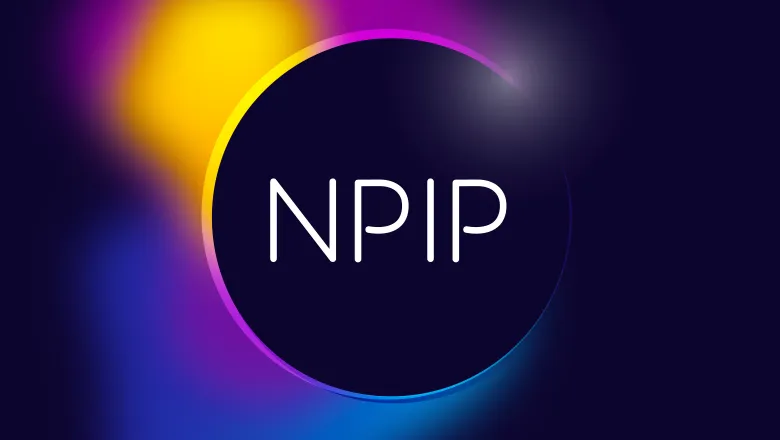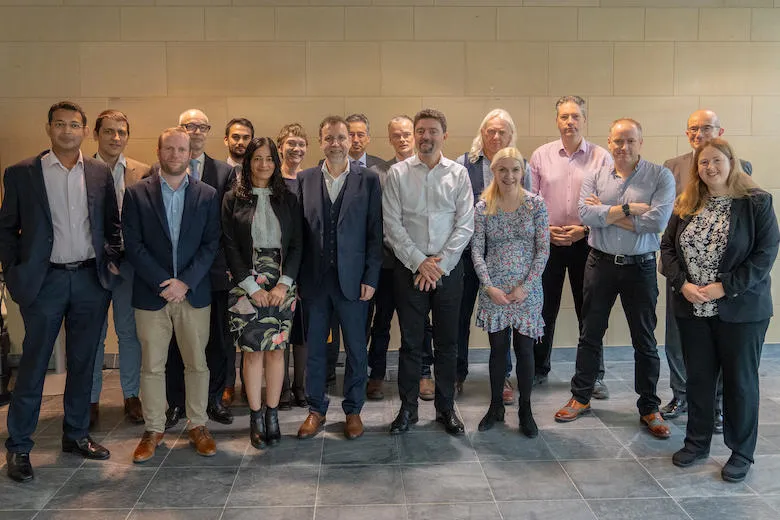The opportunity created by this national facility will build a springboard for the UK to lead the future of nuclear medicine. Through its onsite co-creation with industry partners and King’s academics, the PET Centre at St Thomas’ Hospital is uniquely located to respond to this challenge and create improved healthcare outcomes for our patients.
Professor Alexander Hammers, Head of PET Imaging Centre, School of Biomedical Engineering & Imaging Sciences at King’s College London
05 October 2023
UK launches first national Total-Body PET platform for drug discovery
The National PET Imaging Platform (NPIP) will bring together data from two state-of-the-art total-body PET imaging scanners located at St Thomas’ Hospital, London (jointly managed by King’s College London and Imperial College London), and The Royal Infirmary of Edinburgh (jointly managed by the Universities of Edinburgh and Glasgow), and make it accessible to academics, industry and clinicians.

NPIP is a partnership between Medicines Discovery Catapult (MDC), the Medical Research Council (MRC) and Innovate UK, and will deliver scientific breakthroughs with the launch of the UK's first-of-its-kind national total-body positron emission tomography (PET) imaging platform for drug discovery.
The National PET Imaging Platform will deploy total-body PET across the UK, bringing together transformational research from two state-of-the-art total-body PET imaging scanners. It will transform medical research and industrialise cutting-edge technology, enhancing the quality and speed of drug discovery.
By facilitating access to total-body PET imaging for clinicians, academics and industry, NPIP will help accelerate discoveries, leading to more advances for UK researchers and better outcomes for patients, improving the calibre of healthcare now and in the long term.

Advances in imaging and informatics pioneered here in the UK have led to a step-change in how we diagnose and treat diseases like cancer and Alzheimer's, bringing hope to patients and their families. Our £32 million backing for this Platform will give British clinicians and researchers access to a never-before-seen breadth of data, pushing forward new innovations from drug discovery to screening, strengthening our life sciences sector, and ultimately transforming lives.
George Freeman MP, Minister of State at the Department for Science, Innovation and Technology
The value of NPIP is huge for the UK life sciences sector, providing researchers with access to superior clinical data, not just from their own trials but from every research programme that joins the platform. NPIP will allow the kind of collaboration in imaging research the likes of which the UK has never seen before. It will set a new standard of excellence for UK medical imaging research, unlocking innovative discoveries and attracting the international research community to conduct clinical trials on British soil.
Dr Juliana Maynard, Director of Operations and Engagement for the National PET Imaging Platform and Head of Translational Imaging at Medicines Discovery Catapult
PET scanning is a crucial, non-invasive imaging technique that can detect diseases' early onset. With higher sensitivity than existing technology, NPIP’s total-body PET scanners will provide new insights into anatomy that have never been seen before, improving our detection, diagnosis and treatment of complex, multi-organ diseases.
Current PET technology is less sensitive and requires the patient to be repositioned multiple times to achieve a full-body field of view. Total-body PET scans are quicker, exposing patients to considerably lower doses of radiation, meaning more patients, including children, can participate in clinical trials to improve researchers’ understanding of diseases. The speed of total-body PET scanners means that NPIP will be able to facilitate more patient scans, enhancing the scale and impact of clinical research projects.
This richer picture of human health will help us develop drugs and diagnostics more effectively and bring them to market quicker, benefiting patients and enabling the UK to unlock new opportunities to treat complex diseases like cancer and cardiovascular and neurological diseases.
Supplied by Siemens Healthineers, the two total-body Biograph Vision Quadra PET/CT scanners capture outstanding image clarity of a patient’s entire body in near real-time. The scanners will be situated in Scotland and London, serving the length and breadth of the UK. Each facility will be jointly managed by the Universities of Edinburgh and Glasgow in Scotland and by King’s College London and Imperial College London in London, and the scanners are expected to be operational as soon as April 2024.
NPIP’s network of infrastructure and intelligence will provide a complete picture of patients and how they respond to novel drugs and treatments. Uniquely, it will also connect insights from many research programmes and trials. In doing so, it will begin to build a rich bank of data that the PET community can access for the benefit of patients.
The UK Government, through the UK Research and Innovation (UKRI) Infrastructure Fund, has invested £32 million into the groundbreaking total-body PET technology that will help drive the UK’s reputation as a global life science superpower.


